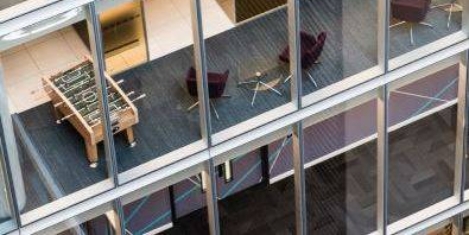May 7, 2016
Problem of London’s success + Design & people + Latest Work&Place 0
 In this week’s Newsletter; Simon Heath suggests that FM should be satisfied with remaining essentially a service; Mark Eltringham bemoans the rise of tall buildings; examines commercial buildings that become synonymous with an organisational or sector crash; and celebrates the work of Donald Broadbent, whose research into cognitive psychology helps us address the effects of unwelcome noise in open plan offices and of German artist Fritz Kahn, in providing some understanding of how people respond to their surroundings. There’s news of a significant drop in employee satisfaction; why remote working may help to reduce the strain on overcrowded cities; and the negative effects of admin and unreliable technology on productivity. You can read the latest issue of Work&Place, download our Insight Briefing, produced in partnership with Connection, on the boundless office; visit our new events page, follow us on Twitter and join our LinkedIn Group to discuss these and other stories.
In this week’s Newsletter; Simon Heath suggests that FM should be satisfied with remaining essentially a service; Mark Eltringham bemoans the rise of tall buildings; examines commercial buildings that become synonymous with an organisational or sector crash; and celebrates the work of Donald Broadbent, whose research into cognitive psychology helps us address the effects of unwelcome noise in open plan offices and of German artist Fritz Kahn, in providing some understanding of how people respond to their surroundings. There’s news of a significant drop in employee satisfaction; why remote working may help to reduce the strain on overcrowded cities; and the negative effects of admin and unreliable technology on productivity. You can read the latest issue of Work&Place, download our Insight Briefing, produced in partnership with Connection, on the boundless office; visit our new events page, follow us on Twitter and join our LinkedIn Group to discuss these and other stories.


































March 30, 2016
Isn’t it time that UK businesses thought more like the Scandinavians? 0
by Richard Morris • Comment, Facilities management, Flexible working, Wellbeing, Workplace
(more…)